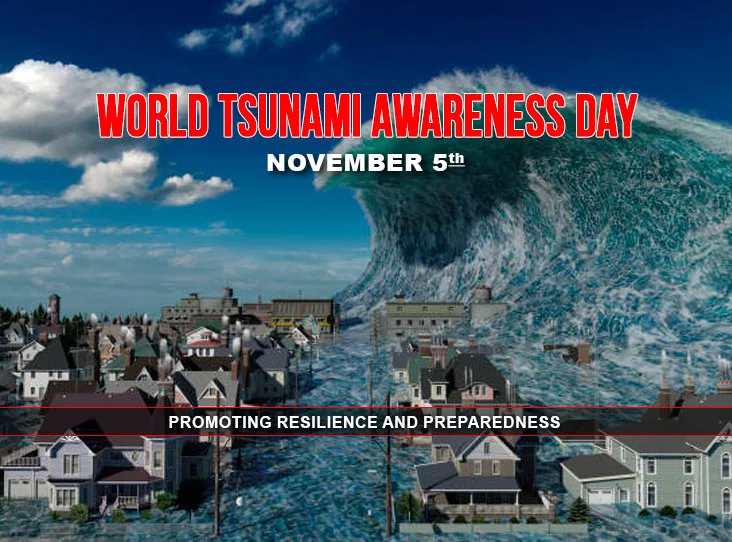The World Tsunami Awareness Day, observed annually on November 5th, is a vital global initiative that aims to raise awareness about the dangers of tsunamis and the importance of being prepared for these natural disasters. Tsunamis, often triggered by seismic activities such as earthquakes, volcanic eruptions, or even meteorite impacts, pose a significant threat to coastal communities worldwide. This day not only commemorates past tragedies but also emphasizes the need for proactive measures and education to mitigate the impact of future tsunamis.
Table of Contents
The Significance of World Tsunami Awareness Day
- Commemoration and Reflection
World Tsunami Awareness Day provides an opportunity for individuals, communities, and governments to remember the countless lives lost to tsunamis. One of the most devastating tsunamis in recent history occurred on December 26, 2004, in the Indian Ocean, resulting in the deaths of over 230,000 people across 14 countries. This day serves as a time for reflection, paying respects to the victims, and acknowledging the long-lasting consequences of such events.
- Education and Awareness
An essential aspect of World Tsunami Awareness Day is the dissemination of information about tsunamis, their causes, and the best practices for mitigating their impact. By enhancing public awareness, communities are better equipped to recognize early warning signs and take appropriate actions when a tsunami is imminent. Raising awareness also helps dispel myths and misconceptions about tsunamis.
- Preparedness and Resilience
The most crucial goal of World Tsunami Awareness Day is to promote preparedness and resilience. Being ready for a tsunami can mean the difference between life and death. Governments, local authorities, and organizations work to develop and implement early warning systems, evacuation plans, and public education campaigns. Prepared communities can evacuate to safe areas promptly, minimizing the risk of casualties and property damage.
Measures to Promote Tsunami Awareness and Preparedness
- Early Warning Systems
The establishment of reliable early warning systems is paramount to tsunami preparedness. These systems use data from seismic sensors and ocean buoys to detect potential tsunami triggers. The collected data is then disseminated quickly to authorities, who can issue warnings to the public. It is crucial that individuals and communities heed these warnings promptly.
- Public Education
Educational programs and awareness campaigns play a significant role in preparing communities for tsunamis. These initiatives should educate people on how tsunamis occur, what to do when a warning is issued, and how to create a family emergency plan. Schools, community organizations, and government agencies all contribute to these efforts.
- Land-Use Planning
Effective land-use planning can help minimize the impact of tsunamis on coastal areas. Communities can establish zoning regulations that restrict the construction of critical infrastructure in high-risk zones. Retrofitting and reinforcing existing buildings and structures in these areas is also crucial for reducing vulnerability.
- International Cooperation
Tsunamis know no boundaries, and cooperation at the international level is essential. Countries can work together to share information, resources, and expertise. Organizations like the United Nations and the Intergovernmental Oceanographic Commission (IOC) play a central role in facilitating this cooperation.
Conclusion
World Tsunami Awareness Day serves as a poignant reminder of the devastating potential of tsunamis and the importance of being prepared. By promoting education, early warning systems, and international cooperation, we can reduce the risk tsunamis pose to coastal communities. This day offers an opportunity for individuals, communities, and governments to come together, reflect on past tragedies, and work towards a safer and more resilient future. Ultimately, increasing awareness and preparedness is our best defense against the unpredictable forces of nature.
Author
Stay connected for new publications, events, and more.







More Stories
Le pape Léon XIV : un pontife historique qui jette un pont entre les continents et les cultures
What Happens When a Pope Dies
Le Prix de la Liberté : 17 Avril 1825, une Ordonnance Injuste. Déclaration de Macron